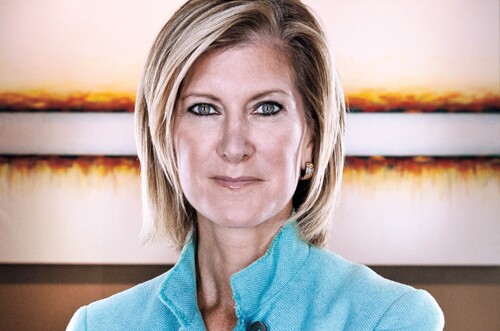
1. Mary Callahan Erdoes
CEO, JPMorgan Asset Management
Mary Callahan Erdoes is grateful for the technology that gives her the flexibility to work from anywhere, but she wouldn't mind the occasional blackout zone.
"I thought it was the worst thing when they created WiFi on overnight European flights," jokes the head of JPMorgan Chase's asset management division. "It was my last spot of sanity."
Of course, working on planes, trains and automobiles is de rigueur for the woman who oversees the management of $2.4 trillion in client assets at the country's largest banking company. Since assuming her role in 2009, Erdoes has made asset management a reliable warhorse atJPMorgan, generating 11% of the company's annual revenue and net income in 2013.
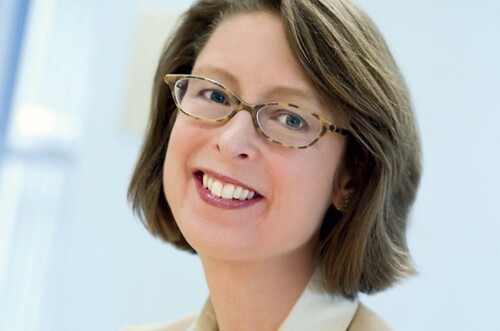
2. Abigail Johnson
President, FMR
"Most powerful" and "low profile" are descriptors that rarely go together, but both describe Abigail Johnson well.
Johnson, president of FMR, the parent company of Fidelity Investments, frequently is called the most influential woman in finance especially since being elevated to her current post in September 2013. She's the front-runner to succeed her father, Edward "Ned" Johnson III, 84, as CEO of the privately owned mutual fund giant. And she's already No. 23 on Forbes' list of America's richest people. Yet she is steadfastly media-shy famous for being not too famous.
Johnson, who has spent 26 years with the Boston company founded by her grandfather in 1946, now holds responsibility for all aspects of Fidelity's financial services businesses, corporate operations and diversified investments. Revenue grew 7% last year, to $13.6 billion, but she is intent on doing better. "We're sharpening our focus on how we can engage with the investors of the future, more and more of whom will be women," she says in Fidelity's 2013 shareholder update. "Our research shows many lack confidence in their ability to make financial decisions, particularly younger women. Yet, at the same time, women are becoming increasingly powerful in our economy controlling more wealth, often out-earning their spouses, and making more retirement decisions. We want to win their respect, earn their loyalty, and be their financial services company of choice."
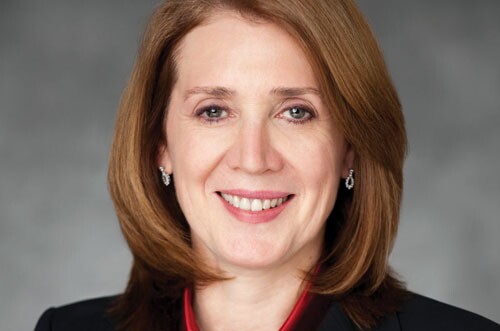
3. Ruth Porat
EVP and Chief Financial Officer, Morgan Stanley
Long known as one of the most powerful women on Wall Street, Ruth Porat has shown leadership lately on issues facing women in corporate America.
In her current role, which she's had since January 2010, Porat is credited with helping to see Morgan Stanley through the aftermath of the financial crisis. She was co-leader of a 39-executive team advising the U.S. Treasury Department on how to handle the Fannie Mae and Freddie Mac bailouts, and in 2013 she was said to be on President Barack Obama's list of potential Treasury deputy secretary nominees only to withdraw from consideration. (She reportedly cited improving conditions at Morgan Stanley and the acrimony of the confirmation process.) This year, Porat was named vice chairman of the influential Economic Club of New York, a post that had been held by the club's now-chairman Bill Dudley, head of the Federal Reserve Bank of New York.
Porat, a mother of three, also gained attention this year for backing New York Sen. Kirsten Gillibrand's push for a national paid family-leave law. And she's a kindred spirit of Facebook Chief Operating Officer Sheryl Sandberg, whose 2013 book, "Lean In," has influenced female business leaders to speak out on gender issues though Porat has said leaning in isn't so simple when corporate higher-ups are pushing back.
In April at a Japan Society event in Manhattan, she noted that women hold only 15% of executive officer positions at Fortune 500 companies. Though the statistics are meaningfully better than they were 50 years ago, she said, "they're not where they should be, and, in fact, I would say they are an embarrassment."
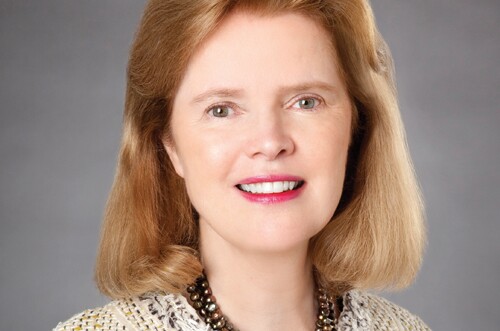
4. Barbara Byrne
Vice Chairman, Investment Banking, Barclays
Barbara Byrne is giving the term "portfolio diversification" a whole new meaning.
On July 10, Byrne rang the bell at the New York Stock Exchange to herald the launch of exchange-traded notes representing 85 U.S. companies with a female CEO or at least 25% female members on the board.
The ETNs track the Barclays "Women in Leadership" total return index and are designed to provide investors with exposure to U.S. companies with gender-diverse executive leadership and governance.
"This is an index that will appeal to pension funds, endowments, and other institutions looking for diversity in their portfolios," says Byrne.
She supervised the introduction of the new index family and ETN program. The initiative is part of the three-year old Barclays Social Innovation Facility, which Byrne chairs.
"We are seeing more women CEOs today but the total numbers are still extremely small," she says.
For instance, whereas the goal is to have 100 NYSE- or NASDAQ-listed companies represented as part of the new weighted index, so far only 85 firms including General Motors, IBM, PepsiCo and General Electric meet the criteria. Her hope is to "move the needle and promote more diversity," she says.
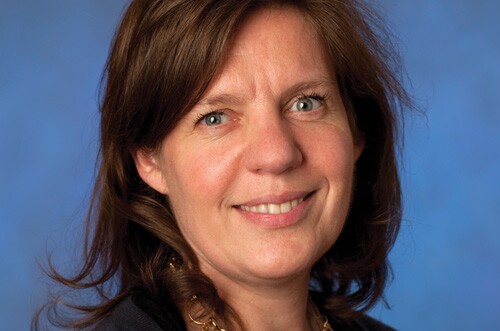
5. Isabelle Ealet
Global Co-Head of Securities, Goldman Sachs
Though she generally avoids public attention, Isabelle Ealet gets more than a fair share anyway. The speculation that she could become the first woman to run a Wall Street bank one day is only growing as time goes on. Her promotion from the global head of commodities to global co-head of securities in January 2012 further fueled talk of her future potential, in part because top Goldman Sachs executives have followed a similar trajectory.
A key initiative for her division over the past year has been putting in place procedures to comply with new regulations. On the fixed-income side, Ealet and her team have meaningfully reduced risk-weighted assets and continue to manage for risk-weighted returns.
Ealet, who is based in London, became a managing director at Goldman in 1997, a partner in 2002, and a member of the executive management committee in 2008. She frequently advocates for getting other women into leadership roles in the financial services industry. She said in a rare interview a few years ago that one of the most significant barriers to achieving more female leadership is a lack of talented women leaders as role models.
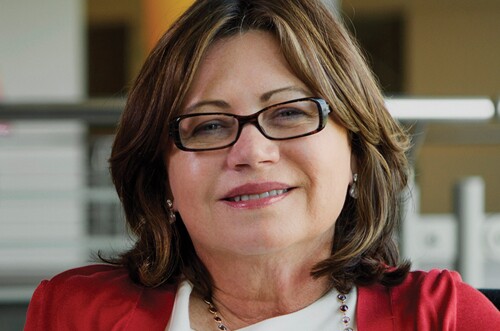
6. Diane Offereins
EVP, President of Payment Services, Discover Financial Services
During her 16 years working at Discover Financial Services, Diane Offereins has seen many dramatic shifts in the financial industry. But perhaps none, she says, as extreme as what she is seeing now. "The whole payments industry is going through a complete change at this particular moment," with new players and new technology, Offereins says. "It's all changing the game."
Offereins and her team have spent much of the past year focused on new EMV compliance, tokenization and the move to mobile platforms, while at the same time continuing to build Discover's acceptance ("our No. 1 job," she says). It's a job that she and her team are handily accomplishing: In 2013, Discover Network grew acceptance by 4.2 million merchants, according to The Nilson Report. Offereins' Payment Services also profitably processed $310 billion of transactions last year, including a record $110 billion of Discover Card sales volume. Under her leadership, Discover's payments business has grown to become the world's third-largest global acceptance network in just eight years. It had been fourth behind American Express.
Outside of work, Offereins is involved in the Committee of 200, an invitation-only organization of the world's most successful female entrepreneurs and leaders.
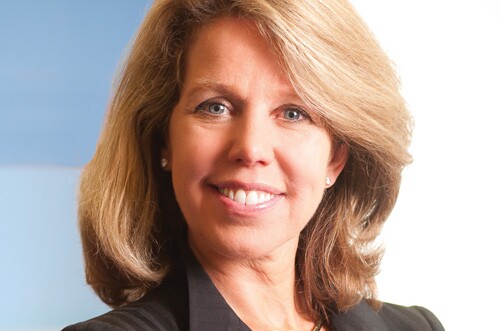
7. Maliz Beams
CEO of Retirement Solutions, Voya Financial (Formerly ING U.S.)
Maliz Beams has found something many employers have been searching for: an effective way to nudge workers to save.
Displaying 401(k) plan information online and via mobile devices and putting the focus on monthly retirement income years hence is one of the best ways to get employees to save more for the future, she says.
A sample of 100,000 participants at 10 retirement plans Voya looked at finds that when the plans had its myOrangeMoney digital platform running on their plan website for just a few weeks, 20% increased their 401(k) savings rate an average of 38%.
Voya focused on how participants can create future monthly income, rather than just confronting them with their overall balance which most individuals find hard to translate.
The system allows participants to visually track their progress. They can move sliders to see how changes to the contribution rate, estimated retirement age, rate of return and risk can affect their retirement income goals. Then they can change contribution percentages in response.
With an IPO in its rear-view mirror, the former ING U.S. has continued the process of rebranding to Voya over the past year following its spinoff from ING Group. Beams' Retirement Solutions unit reported operating revenue of $953 million in the first quarter of 2014, a 7% increase from a year earlier. As of March 31, assets under management and administration were about $370 billion, also up 7%. In April, the Teachers' Retirement Board picked Voya as its new recordkeeper for roughly $500 million in retirement assets run by the prodigious California State Teachers' Retirement System's supplementary savings plan.
Beams is continuing to focus on getting more women to become financial advisers through the Women's Advisory Network that her organization spearheaded about five years ago.
"We are finding when dealing with our customer base, over 50% of the decision-makers are women, and they tend to have a higher comfort level dealing with other women," says Beams.
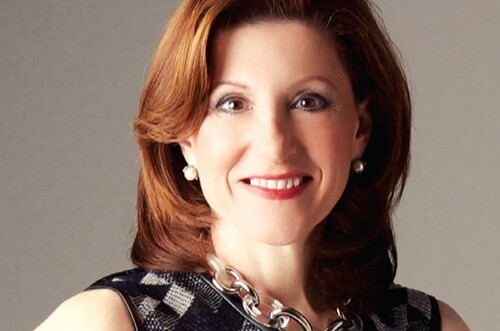
8. Lisa Pollina
Vice Chairman, RBC Capital Markets
Lisa Pollina is a banker's banker. She oversees relationships with RBC Capital Markets' largest financial institution clients, entities like Citigroup, JPMorgan Chase and State Street that are also counterparties and competitors.
Building stronger relationships with these companies has been a key goal for Pollina. One strategy has been holding meetings of five executives each from RBC and the client. At these meetings, she gets the backing of a "co-sponsor" from the client's executive team to keep the lines of communication open.
Pollina also has worked internally to improve how RBC interacts with these clients. This meant trying to break down the walls between the different divisions at RBC. She's set up internal planning sessions in which all employees regardless of business line or geography examine all aspects of the relationship. She's also launched a system of examining the profitability of each client, an initiative that has helped increase revenue in her areas by 27% since she was named vice chair in 2012.
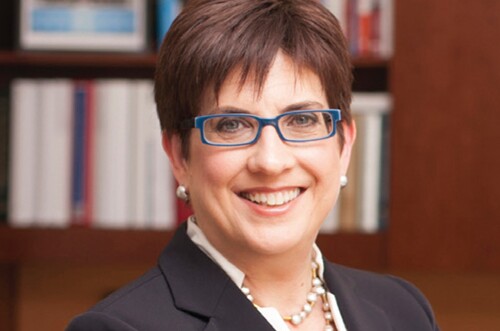
9. Marie Chandoha
President and CEO, Charles Schwab Investment Management
Environmental conservation and finance tend to attract two very different kinds of people. But Marie Chandoha, the president and CEO of Charles Schwab Investment Management, is bridging the divide. As a trustee of the California chapter of the Nature Conservancy, Chandoha says she frequently draws on her experience at Schwab to develop innovative ideas for preserving the environment. She recently helped the Nature Conservancy create a temporary habitat for migrating birds by paying rice farmers in California's Central Valley to flood their fields. Chandoha says her commitment to environmentalism is rooted in a childhood spent in the great outdoors. Today, she and her husband try to practice the conservationist ethics they preach on their 160-acre Sonoma Mountain ranch. The couple has also worked to increase biodiversity on the property through techniques like intensive grazing, in which cattle chow down on grass in different pastures for short periods of time. To make sure their efforts last, they've placed half the ranch in a conservation trust.

10. Margaret Keane
President and CEO, Synchrony Financial
This summer Margaret Keane went from business line head to CEO of a publicly traded company, the culmination of a decade's work.
In July, GE Capital spun off the retail consumer finance business that Keane had led since 2004. The newly independent company, called Synchrony Financial, is the largest private-label credit card provider in the United States by purchase volume and receivables, according to Morningstar. It provides private-label cards for big merchants like Amazon, Gap, PayPal and Wal-Mart.
Plans Keane helped put in place over the years are paying off. New ideas fostered by the company's Innovation Station, which Keane was instrumental in setting up, helped boost card purchases using digital channels by 62% from 2010 to 2013.
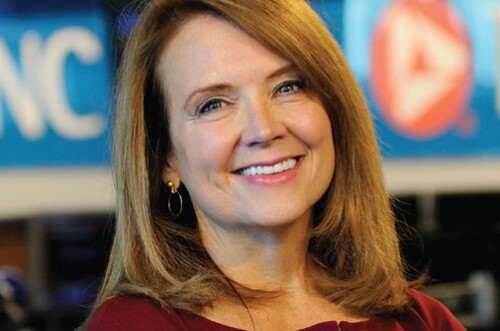
11. Charlotte McLaughlin
President and CEO, PNC Capital Markets
Thinking like clients yields the best solutions for them, says Charlotte McLaughlin.
One of their most common complaints is that they would rather deal with one person than an army of bankers for all their various needs. So McLaughlin partnered with other PNC business units to give clients of her capital markets unit the more integrated solution they wanted. The change helped contribute to a 3.4% increase in revenue for the unit in 2013 from the previous year.
McLaughlin also is expanding PNC's employee groups to bring workers of similar backgrounds together and has been an executive leader for the women's and LGBT groups.
She says the workplace is becoming more egalitarian thanks to millennials. They tend to look for ways around the traditional corporate structure and sequential promotions, and distinguish people more by how hard they work and what they know, not gender or age.
"Advancement is no longer about 'how long have you been here?' and 'what is your title?'" McLaughlin says. "With millennials, it's more about 'what can I do to contribute more and make a difference faster?'"
Still, she thinks it is important for women in business to stay connected. This year McLaughlin became a member of the elite business women's network the Committee of 200.
"There are so many traditional male networks out there and now we have one," she says.
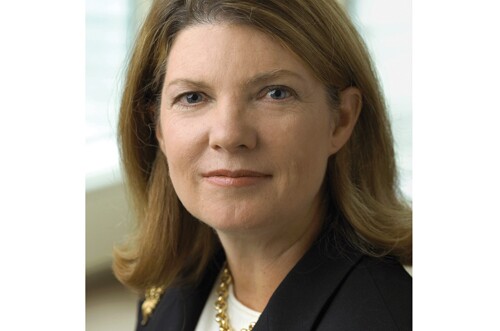
12. Candace Browning
Head of Global Research, Bank of America Merrill Lynch
This past year, Candace Browning and colleagues from various parts of Bank of America Merrill Lynch participated in a "Thought Leadership Steering Committee" whose findings sound more philosophical than financial.
Investors, the group found, should build their portfolios around five key themes: Markets, people, earth, government policy and technology. For example, Browning says, under the category of "people," the longevity revolution is changing the world and creating investment opportunities in areas such as dental implants.
"The idea was to identify major forces reshaping the world," says Browning. "And we created investable portfolios for clients based on these themes."
The global research group provides recommendations on more than 3,500 stocks and 1,100 credits, as well as forecasts for nearly 60 economies. Under Browning's leadership, it has been named the top global research firm by Institutional Investor magazine for three consecutive years.
Browning also serves as the executive champion for Vital Voices, which helps emerging female leaders in other countries develop the skills to succeed. She has traveled the world mentoring these future leaders and has learned a lot from them too. Most memorably, women in India taught her how lucky she is to live in the states. "Many women said they could not work late because it was dangerous to travel on public transportation," she says. "I had never thought something like that could be an impediment to success."

13. Rebecca Patterson
Managing Director and Chief Investment Officer, Bessemer Trust
Rebecca Patterson worked as a journalist before starting a career in finance, and her communication skills have contributed mightily to her success.
She says one of her most notable contributions to Bessemer Trust's 22% rise in assets under supervision last year was not an impressive new client or investment model, but simply periodic roundtable discussions for clients. Bessemer would host these whenever a handful of clients would pose the same question, whether it was concerns about the shale revolution or an economic turnaround.
During her two years at Bessemer, Patterson also has been responsible for keeping all employees better informed. She launched two internal publications that provide insight on market events and news developments. And she holds a meeting every Monday morning, open to all 800 employees, to update them on what's driving the markets for the week.
Patterson says her stint as a journalist helped her become a "financial translator" of sorts. "I analyze what can be immensely complicated global economic and market issues and turn them into plainspoken communication as well as successful investments," she says.
Patterson also has made a name for herself and Bessemer demystifying the financial markets as a regular contributor on several CNBC programs, including two years co-hosting the show "Money in Motion." In 2013 alone, she did 40 media interviews, and wrote or co-authored 50 external publications.
And as a committee member of the Federal Reserve Bank of New York's Foreign Exchange Committee, Patterson regularly explains currency issues to junior central bankers from around the world.
With all the professional commitments mounting, Patterson still makes plenty of time for her two girls. At their public elementary school she founded the Village Chess Foundation, which teaches kids to play and provides funds to help them travel to tournaments.
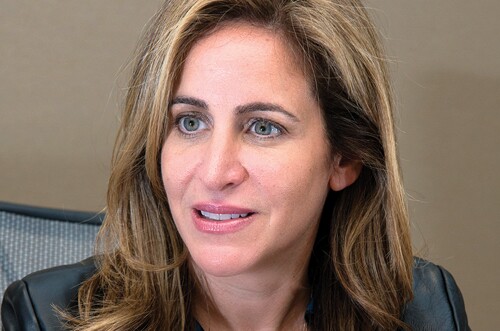
14. Katia Bouazza
Co-Head of Global Capital Markets for the Americas, HSBC
When talking about the business she's been building for the last decade, Katia Bouazza sounds like a proud parent.
"I have two wonderful daughters 17 and two," Bouazza says. "And I had another child in between. It was called the Latin American focus for HSBC."
That focus was born in 2003, when Bouazza was promoted to senior vice president of debt capital markets for Latin America, and helped HSBC expand the business in the Americas, starting south of the border. Today, as a co-head of global capital markets for the Americas, Bouazza runs one of the most profitable businesses at HSBC.
With all her work in Latin America, Bouazza says she was often the only woman in the room, but she is hoping to change that. And she is trying to encourage more women to continue in finance by mentoring anyone who seeks help. Through HSBC's Balance employee resource group, she seeks to recruit and develop a gender-diverse workforce.
"The key to having more women in top positions is to develop and recruit a sufficient number of women to choose from in the pool of talent," Bouzza says.
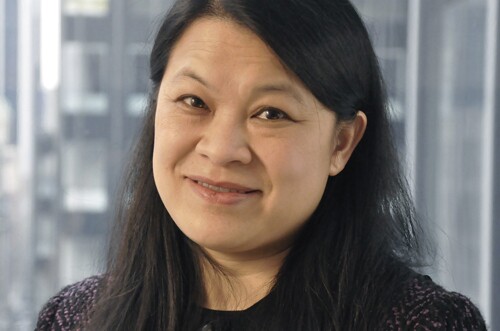
15. Joyce Chang
Global Head of Research, Corporate and Investment Bank, J.P. Morgan
This is a big year for Joyce Chang. At J.P. Morgan's corporate and investment bank, she's gone from overseeing about 280 employees as global head of fixed income research to supervising about 950 employees as the global head of research. She was also one of three bankers to be inducted into the Fixed Income Analyst Society Hall of Fame.
Since her April promotion, Chang says she has spent most of her time getting the various research groups to work together and making sure all groups are well informed about news that could affect clients. One way she has accomplished both goals is by holding educational sessions on topics like geopolitical issues and their market repercussions and the changes in the fixed-income business after the financial crisis.
Chang also makes a point of getting to know the women that she manages. Shortly before she took on her new role, Chang spearheaded a research report to challenge the conventional wisdom of a forthcoming "great rotation" out of bonds and into equities. She asked a woman from each fixed income group to help her write this report. The team has since written two follow-up pieces.
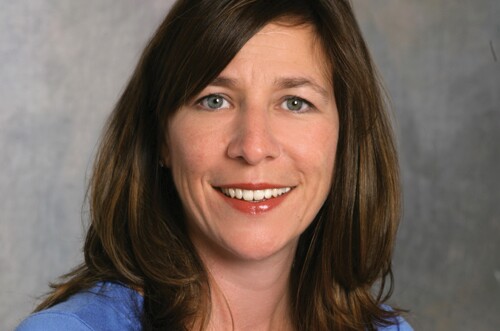
16. Julie Caperton
Head of Asset Backed Finance and Securitization and Head of Corporate Trust Services, Wells Fargo
Julie Caperton, Wells Fargo's securitization chief, has taken on a lot of new responsibilities. Last fall, when Brian Bartlett, the head of Wells' corporate trust services business, retired, Caperton stepped in to fill the vacancy, adding 2,000 employees and 42,000 accounts to an already weighty supervisory workload.
Other recent highlights for Caperton include working on a major sponsorship and expanding Wells' rail company. To mark the 150th anniversary of the Emancipation Proclamation, Caperton helped organize Wells' sponsorship of the Kinsey Collection's ongoing 20-month national tour. The collection of priceless artwork, documents, historical artifacts and rare books celebrating African-American contributions to history and culture, has gone on display in San Francisco, Charlotte, Baltimore, Atlanta and Houston.
This year Wells saw an opportunity to beef up its rail equipment leasing business. Caperton took on the task of negotiating the acquisition of Long Haul Holding Corp. She closed the $152 million deal April 15, adding thousands of rail cars to Wells' inventory at a time when demand is surging.
Caperton was given the asset-backed finance portfolio at Wells in 2009 and the unit's contribution to Wells' bottom line has increased every year since then. It recorded a 21% increase in revenue for 2013.
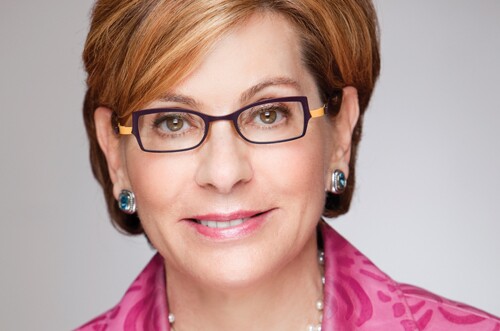
17. Diane Schumaker-Krieg
Global Head of Research, Economics and Strategy, Wells Fargo Securities
When Diane Schumaker-Krieg speaks about advancing women in the business world as she frequently does she often mentions her 10 practical career tips. No. 5 on the list is "be confident."
"Don't let the obnoxious roommate living in your head tell you that you can't do it," says Wells Fargo Securities' global head of research, economics and strategy.
It's hard to believe Schumaker-Krieg ever paid any attention to such a roommate. Since her appointment as head of global research for Wachovia Securities in 2004, Schumaker-Krieg has built the unit into a powerhouse, first for Wachovia, and after its 2009 acquisition, for Wells Fargo.
She has consistently taken on new responsibilities: economics in 2007, municipal strategy in 2011 and credit and financial strategy in 2012.
Today, Schumaker-Krieg's team of 275 analysts covers 2,200 securities and produces 35,000 reports annually. The Priority Stock List she introduced in May 2010 outpaced the S&P 500 by 15.2% in 2013. It's beaten the S&P by 36.1% during its first four years.
If work is Schumaker-Krieg's first passion, advancing the careers of other women ranks a close second. Last year she helped launch an initiative at Wells Fargo that seeks to identify high-potential women and provide them with training, networking opportunities and mentoring.
Schumaker-Krieg's boss, Wells Fargo Securities President Jonathan Weiss, calls her "the most effective leader for women's advancement within our company," and in 2013, Schumaker-Krieg took her advocacy on the road, delivering keynote addresses to groups in London, New York and Hong Kong. In Hong Kong, she told the Women's Leadership Foundation that those women "in leadership positions need to make it a point to reach out to other talented women."
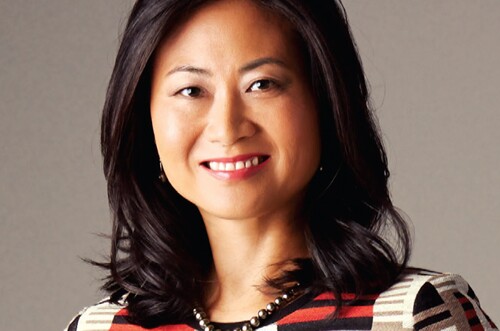
18. Elinor Hoover
Vice Chairman of Capital Markets Origination and Global Co-Head of Financial Strategies and Solutions, Citigroup
A Yale music major who trained at Julliard, Elinor Hoover once dreamed she would "set the world on fire with my piano playing." Instead, she's rocking boardrooms.
Last year, Hoover's team at Citigroup struck a chord with a starkly written warning to corporate clients. "Shareholder activism has morphed from an occasional threat facing corporate management and boards to a sweeping trend," read the widely covered report.
Hoover is a co-head of Citi's global financial strategy and solutions group, which analyzes trends in corporate governance. "The kind of topic that drives so many facets of shaping how companies need to organize themselves today, we will do a deep dive and write about those," she says.
The 25-year banking veteran is also vice chairman of capital markets origination at Citi. She joined the bank in 2011 after more than a decade at Morgan Stanley.
Music remains a big part of her life and career. She serves on the board of the Chamber Music Society of Lincoln Center and is an advisory director at the Bloomingdale School of Music in New York. And her passion has given her an opportunity to mentor young investment bankers. Last year, after giving a talk at Yale, she was approached by several music majors who were interested in finance careers.
"A couple of them afterwards stayed back there just happened to be a piano and played beautiful, different pieces for me," she says. They decided to start a "Musicians on Wall Street" group.
This summer, Hoover hosted a small cocktail party for the Yale pianists, some of whom are now analysts at Citi. They all played for each other and agreed to meet up again.
Hoover hopes Musicians on Wall Street keeps growing. "There are lots of talented musicians in the financial services community," she says.

19. Elizabeth "Liz" Myers
Head of Global Equity Capital Markets, J.P. Morgan
In an uneven year for JPMorgan Chase, Liz Myers shined. Her global equity capital markets unit completed 469 deals in 2013 and generated $1.5 billion in fees an increase of 46% over 2012. That performance was sufficiently strong to earn a positive mention in the company's annual report, which noted "improved wallet share in equity capital markets" helped drive an increase in overall investment banking fees.
The unit has shown every likelihood of doing more of the same this year, as it continues to grab share in a hypercompetitive global market. Since taking over equity capital markets in December 2012, Myers has put a priority on building global linkages among the 190 bankers who report to her. Her team executed 22 cross-border deals in 2013, and it has completed more than 30 so far in 2014.
Myers joined JPMorgan in 1992, working first in mergers and acquisitions and then corporate finance. She took a break between 1995 and 1997 to attend Harvard Business School. She returned to the company in 1997 in equity capital markets and began a steady rise; today, she is the only woman to head a global equity capital markets business at a Wall Street bank.
Myers is active in several women's networking groups at the investment bank, and says she stresses the importance of networking to the young women she mentors. "It is rare that if a younger woman comes to meet with me that I don't follow up by introducing her to someone in the senior ranks," she says.
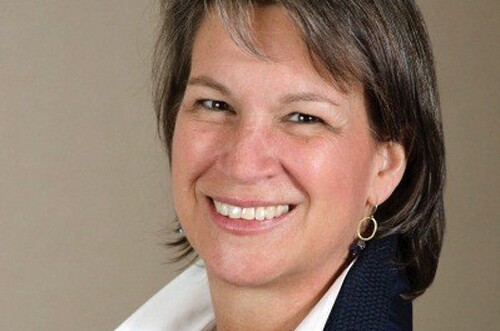
20. Suni Harford
Managing Director, Regional Head of Markets, North America, Citigroup
In her formative years, Suni Harford wanted to teach high school physics. She still occasionally mulls a second career in the classroom.
But if Harford hasn't set a timetable for her switch to teaching, it's because things are going so well at her current gig. North American markets, the unit Harford runs for Citigroup, increased revenues at a double-digit clip in 2013, powered by solid growth in its commodities and equity derivatives business lines. The strong performance of Harford's team helped its parent division, securities and banking, expand North American revenue by 40%, to $9 billion, according to Citi's 2013 annual report.
Cost-cutting initiatives helped the bottom line as well. Harford trimmed real estateexpenses; and her focus on promoting from within Citi resulted in a significant drop in hiring costs.
In May, Harford's undergraduate alma mater, Dennison University in Granville, Ohio she majored in math and physics honored her with its highest alumni award, the Alumni Citation. She also remains heavily invested in the industrywide Veterans on Wall Street initiative she helped found in 2010, as well as Citi's internal efforts to support veterans.

21. Caroline Silver
Managing Director, Moelis & Co.
British taxpayers and anyone who finds bank bailouts distasteful should probably thank Caroline Silver for her work last year.
Silver, a London-based managing director at Moelis & Co., played a pivotal role in the restructuring of Co-operative Bank PLC. In June 2013, the £41.1 billion-asset British institution was scrambling to plug a capital shortfall after recording huge losses. After six months of tough negotiations, Silver helped to strike a £1.5 billion recapitalization deal in December. Investors swapped their bonds for a 70% equity stake in Co-operative. Silver's clients, a consortium of hedge funds, emerged owning 35% of the bank.
Co-operative Bank markets itself as a highly ethical company, refusing to lend to companies involved in arms sales, animal testing and fossil-fuel extraction. So the specter of hedge funds owning such a considerable stake unsettled many Co-operative customers. But in the bigger picture, a bank tottering on the brink of collapse was rescued without taxpayer funds, offering a template for future resolutions.
Silver's involvement with Co-operative followed a particularly satisfying year in 2012 in which she advised NYSE Euronext on its $11 billion sale to Intercontinental Exchange. That same year, she helped negotiate a $2.2 billion price for the London Metals Exchange in its sale to Hong Kong Exchanges and Clearing Limited. Also last year, she advised Financial Technologies (India) Ltd. on its $150 million sale of the Singapore Mercantile Exchange to Intercontinental.
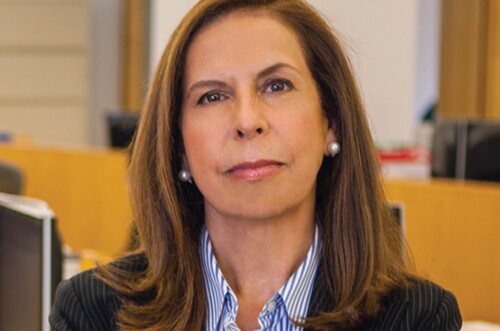
22. Afsaneh Beschloss
President and CEO, The Rock Creek Group
"Hello, Madam President," James Wolfensohn would greet Afsaneh Beschloss, then his chief investment officer, after a 1998 New York Times interview pegged her as a potential successor to the World Bank president.
Beschloss hasn't claimed that post yet, but Wolfensohn could use the same greeting today, and without jest.
After a 20-year career at the World Bank, Beschloss is now president and CEO of the Rock Creek Group, a global advisory and asset manager, previously called Carlyle Asset Management Group. Beschloss ran the Carlyle Group division from 2001 until 2003, when the private equity firm agreed to sell her a majority stake in it. Carlyle turned it over to her completely two years later.
Beschloss has expanded Rock Creek from only several hundred million dollars to a current $10 billion in assets under management. Its fund of hedge funds outperformed by a wide margin last year. Competitors returned a median 8.67% in 2013, according to the InvestHedge Composite Index. Rock Creek's flagship fund returned 15% to its investors, mostly pension funds. Beschloss' team also managed to beat the MSCI Emerging Markets Index by 4%.
Beschloss may be the only woman to run such a sizable firm of this kind, but at times, it's been easier to ignore that gender-specific superlative. "You almost have to not be a woman, or not be seen as a woman, in order to succeed," she says of the male-dominated world of finance, where trading floor diversity still isn't all that different from the 1980s.
Three decades ago, when Beschloss was starting her career in energy and finance, she was the only woman at Shell International Group Planning in London to be seen in the executive officers' dining room. That environment is changing, albeit slowly. The best way to improve gender balance in the industry, she says, is to be a good mentor, provide leadership and focus on performance.
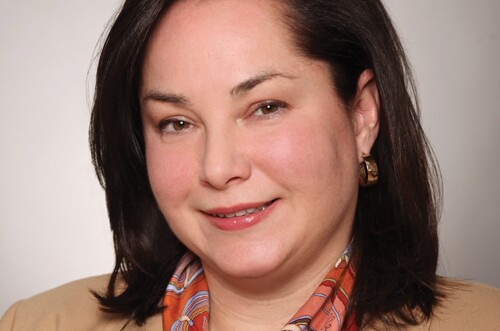
23. Kelly Williams
President, GCM Grosvenor Private Markets
"Diversity" has become a buzzword as companies position themselves to take advantage of an increasingly disparate clientele. But Kelly Williams can stake a solid claim to having led the charge, not just having responded to the call.
Williams was an early proponent of investing in fund managers owned by women or minority professionals. She recognized that institutional investors increasingly aim to ensure their assets are handled by a diverse group of women and men of various ethnicities. The founding chair of the Private Equity Women Investor Network, she has identified the lack of women especially senior women as "the biggest issue in private equity." And it's an issue that's confounding, because, as she notes, "studies show that women-managed funds perform as well as, if not better than, funds that are not women-run."
Williams has spearheaded diversity-promotion efforts within GCM Grosvenor Private Markets; the result is that a majority of the Chicago-based company's investment team consists of women and minorities. It's that kind of commitment that has earned her top awards from the National Organization for Women and the Robert Toigo Foundation, whose goal is to bring diversity to the finance industry.
A managing director and group head of the Customized Fund Investment Group at Credit Suisse from 2000 to 2013, Williams successfully shepherded her team through a sale that resulted in CFIG being purchased by GCM Grosvenor. Through it all, she retained 98% of clients. Today, she oversees a global business that has some $30 billion of commitments and $20 billion of assets under management.

24. Mary Mack
President and Head of Wells Fargo Advisors
Mary Mack is giving Wells Fargo Advisors a makeover. Since taking the helm at the nation's third-largest retail brokerage in January, she has split the financial services group she once ran into three distinct units, reshuffled management and strengthened collaboration between the brokerage and banking units to boost cross-sales and referrals.
Not all the moves were popular. Many advisers have expressed concern that tighter relations between the bank and the brokerage house would force them to push banking products on clients. But Mack insists these steps will ultimately deepen customer relationships and drive the unit's growth. It's a message she continues to spread as she travels the country meeting with firm's roughly 17,000 advisers.
Mack is the only women currently heading a major brokerage house.
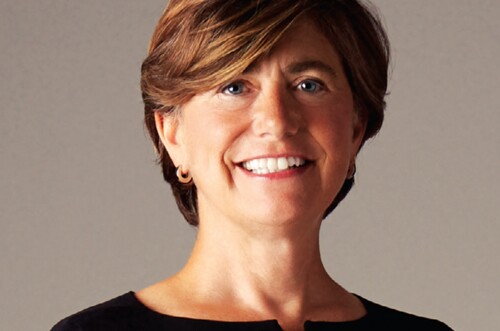
25. Julie Goodridge
Founder and CEO, NorthStar Asset Management
With her daughter heading off to college, Julie Goodridge has more time to give back to the community. And she recently acquired a much better space to do it in.
Until last year, NorthStar Asset Management's offices were just down the street from Goodridge's home in a house just like it. The location was convenient for raising a child, but did little to raise the company's profile in the Boston area. "If we were hidden," she says, "how were we supposed to be seen as part of the local economy?"
Last year, Goodridge bought and renovated a 3,000-foot, former medical office in Jamaica Plain, a neighborhood on the southern side of Boston.
With enough space to host community events, she prepared to offer financial planning seminars for low-income women. The seminars are intended for "a diverse population," but focus on the needs of college students.
"I wanted people who were on full scholarship, or close to full scholarship," Goodridge says, "so they could understand not only the struggles that their parents had in terms of paying for college, but also the kinds of responsibilities that they might have when they graduate."
NorthStar tested the curriculum over the summer and planned to offer its first official seminar in the fall. Goodridge says she'll work with local nonprofits and community groups to find women who could benefit from the program.
"My goal is sort of selfish in one way," she says. "I really want to understand what the needs are of these folks, so that I can put together... a loan product that will allow these women to have credit, to borrow money, to start businesses."





